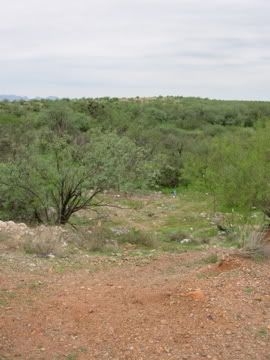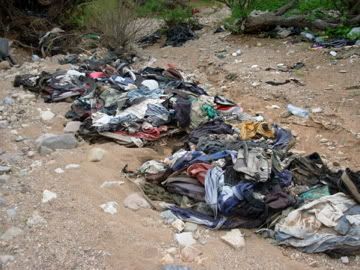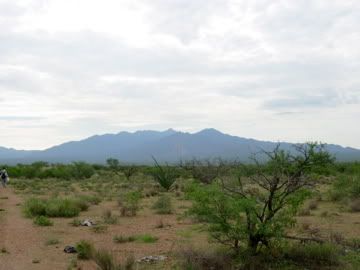it is a humanitarian issue, i believe, more than anything else.
these patrols are an absolutely heart-wrenching experience. i have not met anyone on the trails - migrants travel at night and usually try to avoid the heat during the day. if you see someone, it is usually because they are in really bad shape. there are, literally, trails crossing the desert - trails laden with discarded bottles for water, backpacks, clothing, the belongings that people dump when they are close to meeting their ride.



it is greener than usual in these pictures, thanks to the monsoons. the monsoons bring some relief, lowering the temperature a few degrees. since last october, there have been about 200 known deaths in the desert. the number is likely higher than that.
the last patrol i went on, we met a migrant on the side of the road - he had been out there for four days, two without food or water and was ready to give up. we gave him food, water, and called the border patrol for him. he was 28.
most migrants who are deported turn right back around and try again. they say that it becomes a cycle of life - entering, getting deported, entering, getting deported, until they either reach their destination, or they die trying.
i don't mean to push some sort of political agenda in this post ... volunteering with this organization has been very illuminating - in that you hear all this about people crossing the desert, but it is quite a different experience to walk the same trails they are and actually seeing and feeling it.
No comments:
Post a Comment